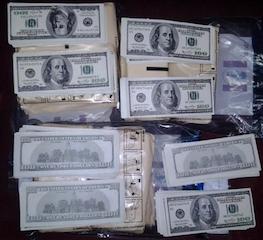
Nigerian banks are struggling to meet $5 billion foreign exchange obligations to importers and correspondent banks, according to Renaissance Capital in a report entitled: “Nigerian banks struggling for FX liquidity.”
The report stated that due to the inability to access foreign exchange from the Central Bank of Nigeria (CBN), banks are having challenges sourcing dollars to meet outstanding foreign exchange, FX, obligations to importers and correspondents banks ranging from $2 billion to $5 billion.
“Declining oil prices and the unwillingness of the government/Central Bank of Nigeria (CBN) to devalue the naira amidst constrained reserves continue to worsen the FX liquidity position of the Nigerian banks. We highlight the sector’s challenges across four fronts, and believe that, should this trend persist in a weak oil price environment, asset quality and international obligation default risks could be significant.
“Nigeria is dependent on imports, which Nigerian banks facilitate via the opening of letters of credit (LC). The customer typically repays these after imports are sold; the customer therefore earns naira, then approaches the banks to source FX from the CBN (or goes to the black market), with which the correspondent bank is repaid.
“With the CBN struggling to provide sufficient FX to meet importers’ FX demands and banks prevented from accepting FX deposits, not only have importers been unable to repay their obligations, they have also struggled to keep afloat – among them import dependent manufacturers.
“As importers have struggled to access FX, the Nigerian banks have used their FX liquidity to settle with the correspondent banks (given the LCs are guarantees), in anticipation of the CBN providing liquidity,” the financial services firm noted.



